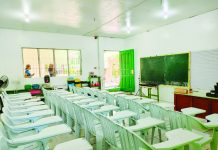
YONGZHENG Yang, International Monetary Fund (IMF) representative to the Philippines, confirms that the country entered the pandemic with a level of public debt that was well below the average of emerging markets. This means that the Philippines can spend more to provide further support to the economy.
One of the success stories of the Duterte administration is the reduction in absolute poverty between 2016 and 2019. I have not seen up-to-date statistics and the next full study on poverty is not due until 2022. Nevertheless, I fear that poverty levels must have risen somewhat during 2020 despite the relief packages from the enactment of the Bayanihan 1 and 2 laws.
The internationally accepted definition of absolute poverty is when a family has to subsist on less than $1.90 per person per day.
It has been estimated that, worldwide, there is an increase of 100-150 million people experiencing absolute poverty in 2020 compared to 2019.
***
Former Socioeconomic Planning Secretary Ernesto Pernia believes that the government is continuing to underspend during the pandemic.
The inconvenient truth is that, despite varying degrees of quarantine, we are not demonstrably winning the battle against the virus. Even under the enhanced community quarantine (ECQ) earlier this year, the R factor – the ability of the virus to advance or recede in the community – was 0.89. This meant that the virus was receding but only very slowly.
R=1 means that we are neither winning nor losing the battle, but when R is greater than 1, which it has been recently, we are losing, and the virus is winning.
Pernia provides food for thought. He believes that there is a need to increase spending to include investments that would fortify the capacity of the health system even if it means taking some from the budget for infrastructure. “These should include hospitals and laboratories,” he says.
I agree.
He also said there is a need to strengthen public-private partnerships (PPP) to ease the fiscal burden of government. The Aquino administration had high hopes for the PPP scheme but I believe that government officials were not confident in their ability to form a collegial relationship with the private sector. Consequently, the relationship, somewhat adversarial, did not generate the hoped-for mutually advantageous projects.
An example in Negros Occidental, which never materialized, was the improvements to Bacolod-Silay airport. The government specified expenditure of P20 billion, well in excess of what is economically feasible. Basically, all the airport needs is a longer runway so that non-stop international flights can be implemented. Negros would receive an economically significant tourism boost.
***
We should spend more. Our debt to GDP ratio would increase only marginally compared to the government’s existing plans.
But we would prevent poverty levels from rising./PN





